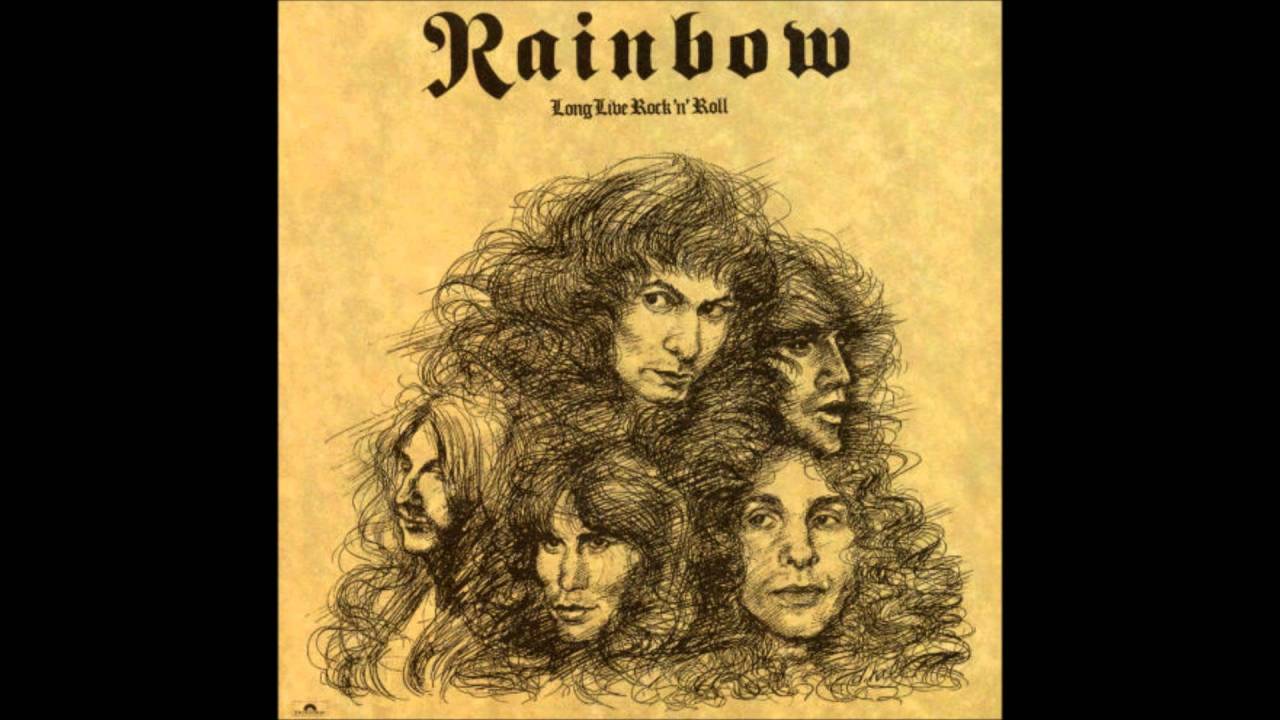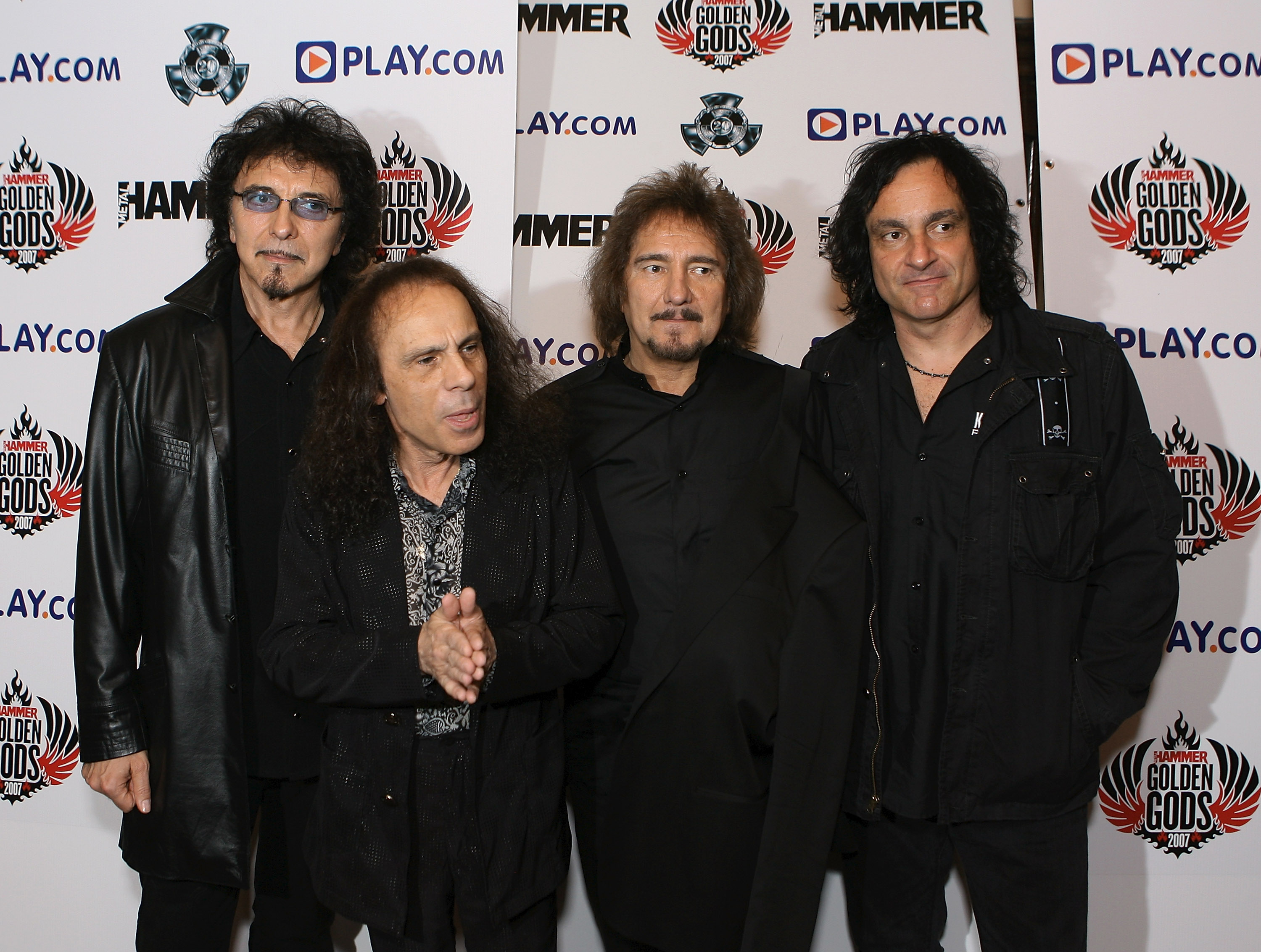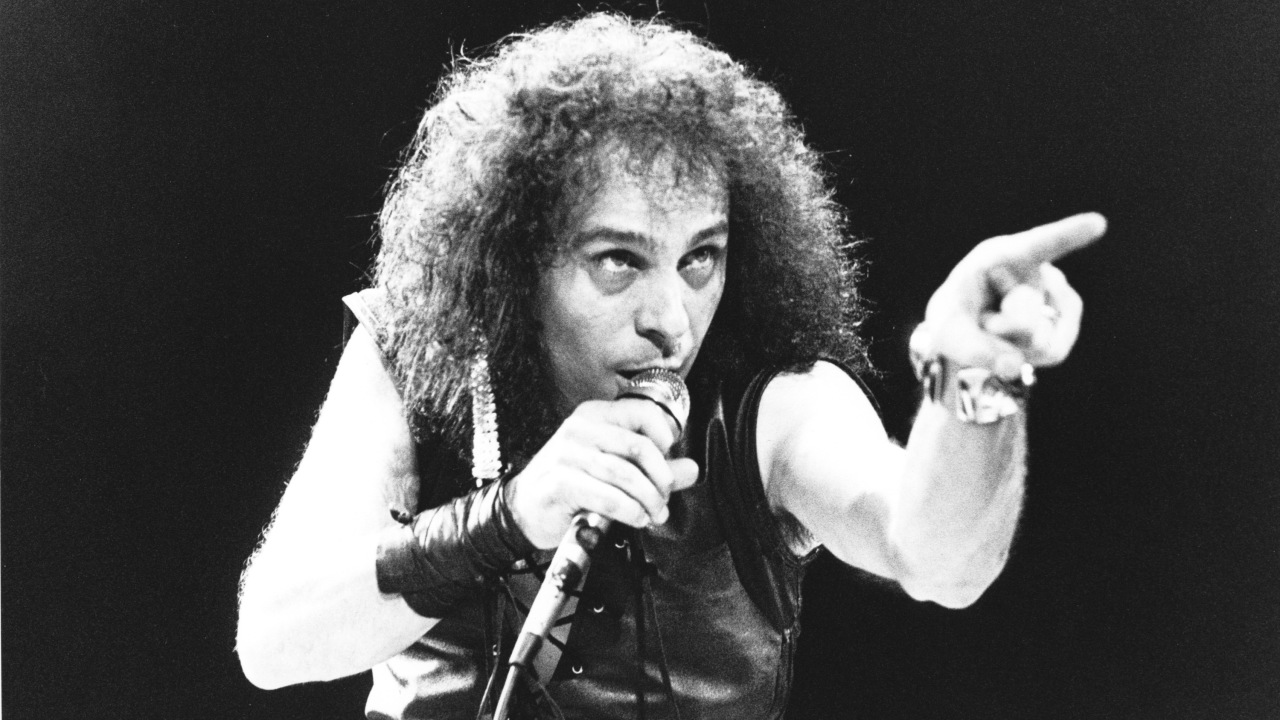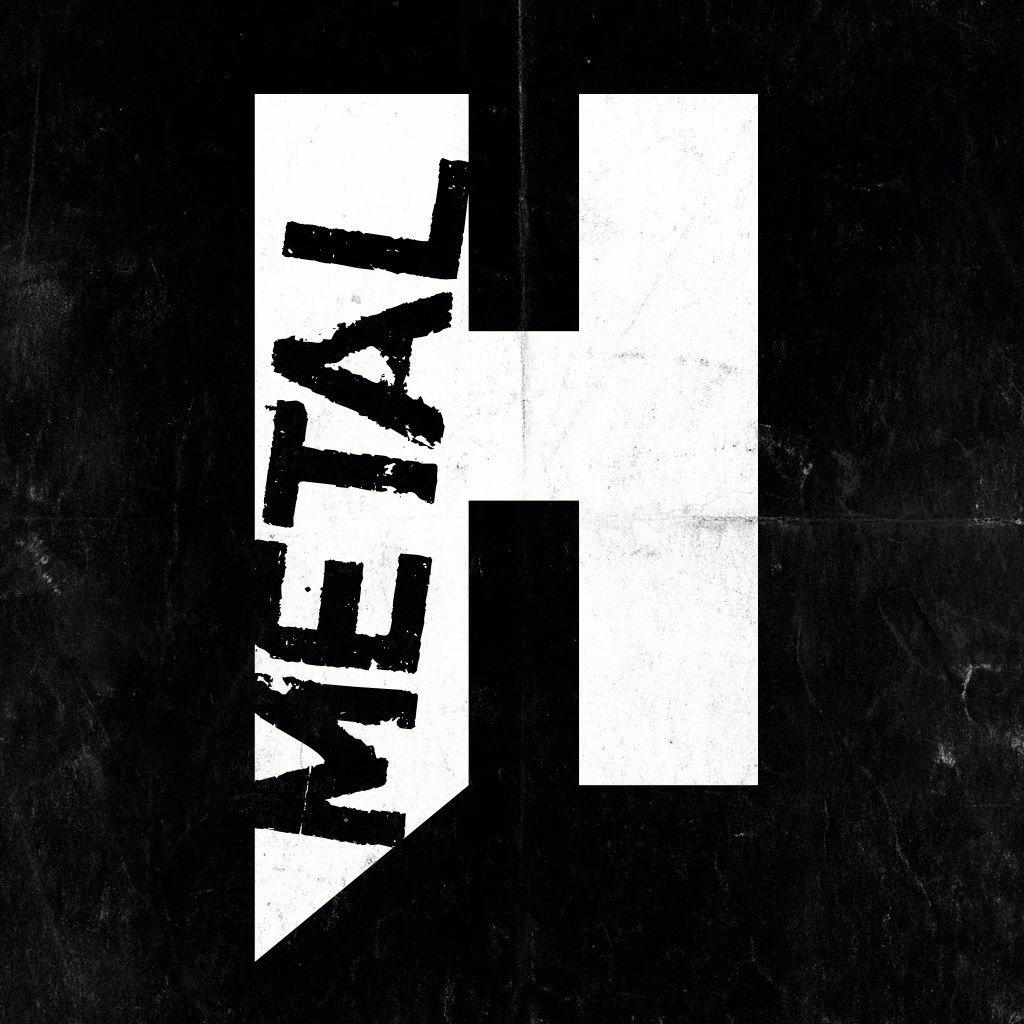The world of rock and metal is in mourning. At the time of going to press, Hammer learned that Ronnie James Dio, a legend of our world and one of the greatest singers ever to walk the planet, passed away on May 16 at the age of 67, after losing his battle with the stomach cancer that had been diagnosed last autumn.
In a statement on his website, Ronnie’s wife Wendy wrote the following: “Today my heart is broken, Ronnie passed away at 7:45am 16th May. Many, many friends and family were able to say their private good-byes before he peacefully passed away. Ronnie knew how much he was loved by all. We so appreciate the love and support that you have all given us. Please give us a few days of privacy to press, Hammer learned that to deal with this terrible loss. Please know he loved you all and his music will live on forever.”
Ronald James Padavona was born in 1942, in Portsmouth, New Hampshire, USA. His family relocated to Cortland, New York, where Ronnie later began his musical career, first as a trumpet player and then a bassist with teenaged rock’n’ roll band The Vegas Kings. It soon became clear that his most remarkable gift was his incredible voice and so he became the band’s driving force. In 1961, he adopted the name Dio and his band became Ronnie Dio And The Prophets. They disbanded in 1967, but Ronnie and guitarist Nick Pantas formed a new band, The Electric Elves, later shortening the name to Elf. From that moment on, Ronnie’s vocal prowess would start to change the sound and soul of rock forever.
Elf became a regular support act for Deep Purple, whose bassist Roger Glover duly produced all three of the band’s albums. When guitarist Ritchie Blackmore left Deep Purple in 1975, he recruited Elf to become the rest of his new band, Rainbow, and produced a debut album, Ritchie Blackmore’s Rainbow, which featured several songs that would become staples of Ronnie’s live sets throughout his career, including the timeless Man On The Silver Mountain. Rainbow’s second album, Rising, emerged in 1976 and was immediately hailed as a classic. Bold, epic and musically extravagant, it proved to be a flawless template for virtually all the heavy music that followed in its wake, Ronnie’s fantasy-orientated lyrics and Ritchie’s titanic riffs combining to majestic effect.
A third Rainbow album, Long Live Rock ’N’ Roll, was released in 1978, but Ronnie left soon after and within a year had replaced the departing Ozzy Osbourne in Black Sabbath.

Sabbath’s career had been on the wane for a few years, but Ronnie’s arrival was the catalyst they needed to recapture the magic of the past. 1980’s Heaven And Hell was not just a brilliant comeback for the pioneering metal band, it was one of the finest records ever to bear the Sabbath name and it was abundantly clear that guitarist Tony Iommi and Ronnie James Dio were a perfect musical match. During this period, Ronnie began to use and popularise the ‘devil’s horns’ hand gesture that’s now become such a ubiquitous part of metal culture; another proud part of the great man’s vast legacy.
After 1981’s Mob Rules album, Ronnie quit Sabbath and embarked on a new career path with his own band, Dio. Proving that lightning could strike not just twice but three times, the band’s debut, Holy Diver, emerged in 1983 and was immediately heralded as a masterpiece, every one of its nine songs an instant metal classic.
1984’s follow-up, The Last In Line, was every bit as good, and Dio were firmly established as one of the biggest and best metal bands of the 80s, with subsequent albums like Sacred Heart and Dream Evil further cementing Ronnie’s status as one of metal’s most revered figures.
He returned briefly to Sabbath in 1992, for the crushing, doom-laden majesty of the criminally underrated Dehumanizer album, before continuing with his solo career for the rest of that decade, memorably dabbling in the bleak atmospheres of grunge on 1994’s Strange Highways and, as the new millennium dawned, indulging his love of storytelling and dramatic concepts on the stunning Magica.
Now an undisputed legend in his own lifetime, Ronnie James Dio remained a vital and prolific figure in his fifth decade as a recording artist. He also became friends with comedy duo Tenacious D, who paid tribute to him on their self-titled debut album and popped up Dio’s Push video [from 2002’s Killing The Dragon]. Ronnie later played himself in their big-screen debut, The Pick Of Destiny, stepping down from a poster on a young Jack Black’s bedroom wall and serving up some sound career advice in his trademark commanding tones.

To the delight of metal fans around the world, Ronnie reconvened his creative relationship with Sabbath in 2006, teaming up once again with Tony Iommi, Geezer Butler and Vinny Appice under the new name of Heaven & Hell. Clearly relishing their renewed partnership, the band hit the road in 2008, notching up 98 shows around the world, before hitting the studio to create 2009’s magnificent The Devil You Know, one of the finest, not to mention heaviest things that any of them had ever been involved with. Ronnie’s amazing voice had never sounded better.
After hearing of his cancer diagnosis and commencing treatment, he was forced to cancel a planned European tour with Dio in November 2009 and his health problems also led to the foregoing of Heaven & Hell’s festival plans for the summer of 2010, all of which must have caused this notoriously dedicated performer a great deal of anguish and disappointment. Ronnie was one of the few musicians who thoroughly deserved to be regarded as a legend. He will be mourned and greatly missed by his family, friends and many hundreds of thousands of fans, but his music will live forever in our hearts.
Cheers, Ronnie. We love you. You rocked.
This was first published in Metal Hammer issue 206.

